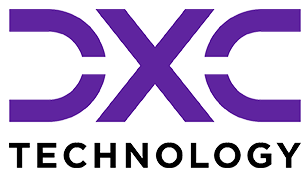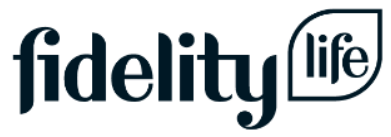Contact Centre Compliance
Discover the benefits of daisee's advanced speech analytics solution today
Flagged high risk calls and explanation of failed calls
90%+ accuracy in processing, analysing and interpreting calls
Automated analysis to provide deep understanding of all voice interactions
Contact centres are the front line of compliance for your business. They contain the most potential for mistakes, and the greatest source of compliance risk. The scrutiny now applied to ever changing and more complex regulation makes the task of a Contact Centre Supervisor even more challenging.
Our Conversational Intelligence solution leverages the latest Artificial Intelligence (AI) and machine learning to take speech analytics to a new level. This gives you an automatic edge over your competitors, showing you exactly where to focus so that you can adapt and navigate quickly as the landscape continues to change.
Compliance risks for call centres
Call centres face multiple compliance challenges with data privacy and security regulations. Most companies typically have manual compliance processes. A small team of people is assigned to randomly sample calls and check for compliance, then extrapolate results to estimate how well the organisation is doing as a whole.
Random sampling results in limited understanding of the full compliance picture for an organisation and can leave the door open to breaches both of compliance and of security in regard to customer data. The sheer scale of some call centres and corresponding volume of calls can make it impossible to review more than the tiniest fraction of conversations. The risk associated with even the smallest breach of compliance regulations makes finding ways to effectively screen large numbers of calls a priority.
By adopting contact centre speech analytics technology, you can achieve broad visibility over all calls handled by your organisation, and focus your efforts on the ones identified as problematic for remediation and CSR training. This can give you an overwhelming advantage over competitors, many of whom are still dedicating massive amounts of time and effort to screen only a fraction of their calls.
What compliance risks should call centres be aware of?
Compliance is very industry-specific, and you need a solution that can be customised to fit the data security and regulatory performance needs of your vertical. For example:
- Sales agents may be required to read out certain scription to maintain compliance
- Brokers must constantly be aware of their duty to the client and avoid bias
- Insurance agents must use specific language and avoid giving personal advice
- Telemedicine calls must be handled in accordance with HIPAA regulations
Contact centres routinely handle payment data including credit or debit card numbers, CVVs, and PINs. These types of sensitive data have long been targeted by cybercriminals worldwide, and robust security measures are required to protect access to such data and reduce your company’s fraud exposure from internal and external risks.
The Payment Card Industry Data Security Standard (PCI DSS) is the globally mandated security standard for securing credit card numbers. PCI standards are governed by Payment Card Industry Security Standards Council (PCI SSC), which mandates 12 areas of compliance, five of which relate directly to call centre operations:
- Data Security:
Protect stored cardholder data at rest, in use and in motion* - Encryption:
Encrypt cardholder data for transmission across open/public networks* - Data access:
Allow access to cardholder data only on a need to know basis* - Physical access:
Strictly limit physical access to cardholder data* - Network access:
Track and monitor all network resource and cardholder data access*
PCI compliance must be cross-channel and cross-format, spanning all systems in use and recognizing the human component at various points in sensitive credit card and personal data collection.
What are the costs associated with compliance?
As noted, compliance that relies solely on human review of conversations can quickly become an overwhelming job, both practically and from a cost effectiveness standpoint. The number of employee hours required to review 100% of contact centre calls manually, evaluate and follow up with compliance remediation is impractical and unsustainable.
However, unless every call is reviewed, the possibility of a breach poses a risk that could be just as costly, if not more so. A loss of personally identifying information (PII) records because they were incorrectly collected or stored can be serious. The average total cost of a breach in 2020 was roughly $3.86 million globally and $11.3m in the USA. The cumulative effects of direct financial and reputational losses are potentially significant.
daisee can help you effectively and efficiently screen through 100% of calls and automatically identify those in need of followup. By allowing you to review all calls and direct internal resources where they are most needed, you take the element of uncertainty out of the picture and can be confident about your organization’s compliance.
Specific call centre regulations
Personally identifiable information (PII) is generally recognized as referring to information which can be used to distinguish or trace an individual's identity. Different countries and regions have different specific regulations concerning PII as well as personal payment information (PMI), and also require compliance with regulations designed to prevent harassment.
- Regulatory Guide 271 mandates that financial firms must have an internal dispute resolution (IDR) system in place that meets standards and requirements put in place by the Australian Securities & Investment Commision (ASIC)
- The Payment Card Industry Data Security Standard (PCI-DSS), prohibits call centres from recording CVV2 numbers and other sensitive data such as PINs and complete magnetic stripe data
- The Australian Competition and Consumer Commission (ACCC) strictly enforces Australian law for debt collection with specific reference to vulnerability, harassment and deception
- The Telephone Consumer Protection Act 47 U.S.C. § 227 regulates outgoing calls from call centres to residents of the US
- The Healthcare Insurance Portability and Accountability Act (HIPAA) mandates the privacy and security of patient health information
- The General Data Protection Regulation (GDPR) issued by the EU sets tight restrictions on how customer data is collected and handled
- The Fair Debt Collection Practices Act (FDCPA), Section 806 disallows call centres from engaging in harassing or threatening language or actions against debtors in the US.
Contact centre compliance must cover all countries in which the centre conducts business or handles call traffic to or from. Failure to maintain compliance can result in steep penalties and fines.
By implementing conversational analytics, you can stand out from your competitors with a solid infrastructure for internal review, and gain new clients by showing your ability to adapt and exceed customer expectations proactively.
Why do call centres need advanced technology to support their compliance needs?
A solution that protects PII and supports adherence to compliance regulations is needed for a call centre to appropriately manage risk. Advanced technology including tools and processes like voice recognition, artificial intelligence (AI) and data analytics can help you achieve compliance without sacrificing customer experience.
- Voice recognition:
Accurate, near real-time call transcriptions provide text for analysis - Artificial intelligence:
AI identifies key words and phrases to trigger human review - Data analytics:
Data from across all calls can highlight where compliance issues exist
By implementing tools and software that deliver leading edge solutions, you can bring your entire organisation into better compliance and reduce the risk of a costly breach. daisee can give you the edge you need to rise above your competitors and become the preferred contact centre choice.
How speech analytics supports call centre compliance
Speech analytics allows calls to be recorded and transcribed in near real-time. Automatic evaluation of each call reveals high-risk points of concern and identifies instances where regulatory compliance failed or came too close to failing.
Analytics can be utilized to discover where and when compliance is at risk across your organisation, and help identify what changes can be made to reduce risk and improve compliance.
If contact centre agent methods are an issue, retraining and refreshing on compliance expectations can help remedy the situation. If PII is being disclosed on calls, scripts can be adjusted to prevent accidental gathering of sensitive information and identify what types of calls are prone to inadvertently unsafe agent behaviour.
Can speech analytics help prevent compliance breaches?
Speech analytics performs as a tool to help:
- Coaching & Professional Development:
Improve agent training and performance - Monitoring:
Increase awareness of risky data collection or handling methods - Key Insights:
Facilitate near real-time surfacing of compliance-related issues - Rapid Remediation:
Assist in rapid remediation to bring your organisation back into compliance
More exposure to compliance measures has the positive effect of reducing compliance-related risk, leading to less potential for breaches of regulations and more security for sensitive data.
How does speech analytics support call centre operational goals?
Speech analytics can help you achieve multiple goals across your organisation. You can:
- Leverage data from your calls for better business decision-making
- Refine scripts and streamline processes for improved customer experiences
- Identify agents with poor performance or processes that lead to higher risk
Using a conversational intelligence solution driven by AI technology puts you head and shoulders you above your competitors in terms of being able to not only meet call review and compliance expectations, but exceed them.
Speech analytics for call centre compliance: Use cases
Speech analytics can help maintain the security and privacy of customers’ personal data, keep your organisation compliant with GDPR, HIPAA or other regulatory mandates, improve operations in your contact centre and reduce compliance-related costs.
For Financial Markets:
Speech analytics can help keep bankers and brokers aware of their verbiage and duty of care, keeping their actions and words focused on the best interest of their clients and helping to maximise sales, quality and customer experience opportunities and avoid mis-selling, market manipulation, and insider trading.
For Insurance Markets
Speech analytics can help refine scripting around rates, inclusions and exclusions, helping agents conform to industry standards including RG271, mis-selling and vulnerability requirements.
For Medical and Telemedicine Markets
Speech analytics can help organisations stay HIPPA compliant, protecting the privacy of patients and their confidential information and providing oversight for caller identification and identity authentication.
Can speech analytics reduce compliance-related costs?
Utilising speech analytics can reduce the costs associated with maintaining compliance across your organisation by automating many processes. Instead of hiring more and more staff as you scale to manage quality control across a high volume of calls, you can quickly and easily surface only those incidents that require a closer look for human review.
In addition to cost savings in regard to maintaining contact centre compliance, your organisation can benefit financially by avoiding fines related to non-compliance. Heightened awareness of regulations, opportunities for agent productivity gains and reduced customer churn can also increase revenues. Investing in daisee can provide an ROI of double or triple your costs within just a few months.
Do you want to improve call centre compliance, scale effortlessly, enhance customer experience, and gain a significant advantage over competitors in your field? A speech analytics solution can give you the oversight you’ve been looking for.






